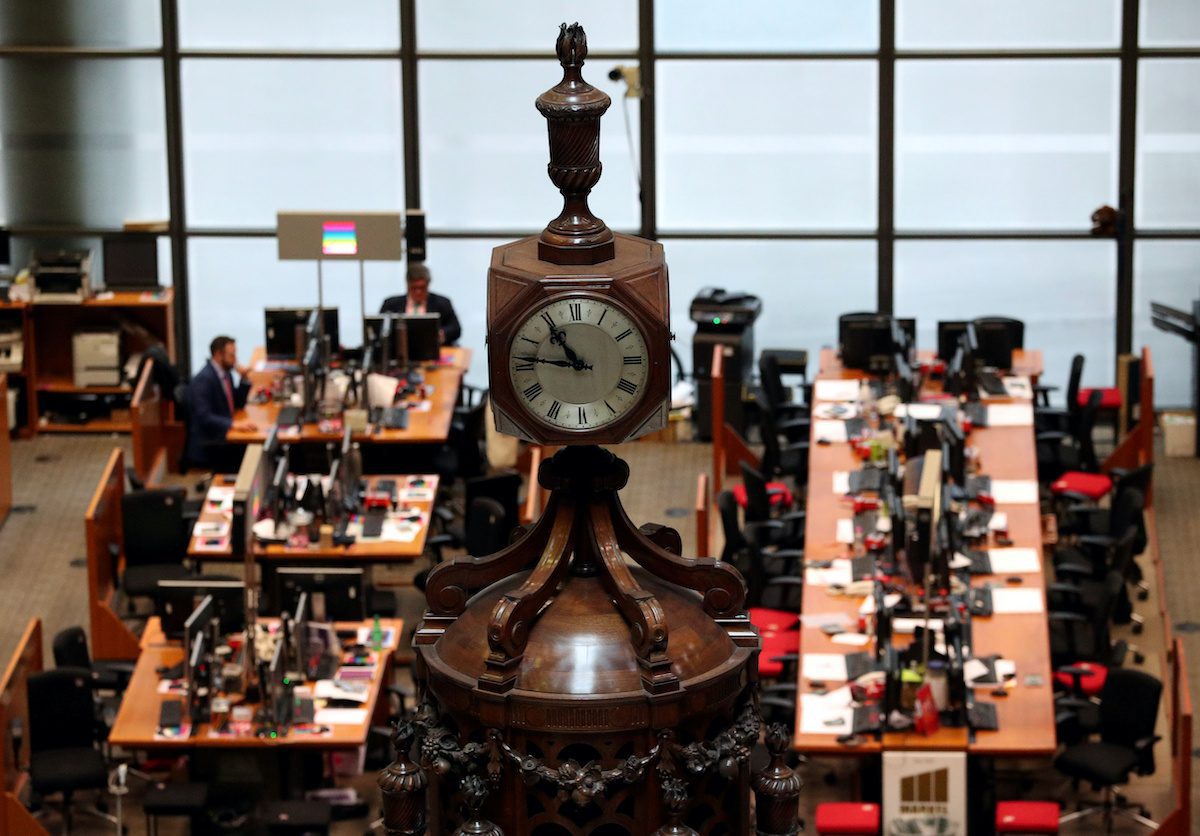FILE PHOTO: The interior of the Lloyd’s of London building is seen in the City of London financial district in London, Britain, April 16, 2019. Picture taken April 16, 2019. REUTERS/Hannah McKay/File Photo

By Guy Faulconbridge and Kate Holton LONDON, June 18 (Reuters) – The Lloyd’s of London insurance market has apologized for its “shameful” role in the 18th and 19th Century Atlantic slave trade and pledged to fund opportunities for black and ethnic minority groups.
About 17 million African men, women and children were torn from their homes and shackled into one of the world’s most brutal globalized trades between the 15th and 19th centuries. Many died in merciless conditions.
“We are sorry for the role played by the Lloyd’s market in the 18th and 19th Century slave trade – an appalling and shameful period of English history, as well as our own,” Lloyd’s said in a statement on Thursday.
“Recent events have shone a spotlight on the inequality that black people have experienced over many years as a result of systematic and structural racism that has existed in many aspects of society and unleashed difficult conversations that were long overdue,” it added.
The world’s leading commercial insurance market, Lloyd’s – which started life in Edward Lloyd’s coffee house in 1688 – is where complex insurance contracts ranging from catastrophe to events cancellation are agreed and underwritten.
Lloyd’s grew to dominate the shipping insurance market, a key element of Europe’s global scramble for empire, treasure and slaves, who were usually in the 18th Century included in insurance policies in the general rate for ship cargo.
Weapons and gunpowder from Europe were swapped for African slaves who were shipped across the Atlantic to the Americas.
Those who survived endured a life of subjugation on plantations, while the ships returned to Europe laden with sugar, cotton and tobacco.
Although Britain abolished the trans-Atlantic slave trade in 1807, full abolition did not follow for another generation.
Lloyd’s said it would invest in programs to attract black and minority ethnic talent, review its artifacts to ensure they were not racist and support charities and organizations promoting opportunity for black and minority ethnic people.
‘INEXCUSABLE’
A sweeping global reassessment of history and racism has been triggered by the May 25 death of George Floyd, a black man who died after a Minneapolis police officer knelt on his neck for nearly nine minutes while detaining him.
An Oxford University college said on Wednesday it wanted to remove a statue of 19th century colonialist Cecil Rhodes that has been a target of anti-racism protests.
And Greene King, which describes itself as Britain’s leading pub owner and brewer, apologized for the profit one of its original founders made from the slave trade.
“It is inexcusable that one of our founders profited from slavery and argued against its abolition in the 1800s,” Green King’s chief executive Nick Mackenzie said.
Green King would make investments to help the black, Asian and minority ethnic (BAME) community and to support race diversity in its business, Mackenzie added.
The history of several other British financial firms, including Barclays is also under fresh scrutiny.
The bank was named after David Barclay, a Quaker who campaigned actively against slavery in the late 18th century, but it later acquired institutions with links to the slave trade, including Colonial Bank in 1918 and Martins Bank in 1969.
“We can’t change what’s gone before us, only how we go forward,” a Barclays spokesman said.
“We are committed as a bank to do more to further foster our culture of inclusiveness, equality and diversity, for our colleagues, and the customers and clients we serve.”
The City of London Corporation has launched the Tackling Racism Working Party, which it said will look to promote economic, educational and social inclusion in the City of London and assess the future of statues and monuments. (Writing by Guy Faulconbridge; Additional reporting by Sinead Cruise and Huw Jones; Editing by William Schomberg, Edmund Blair and Alexander Smith)
(c) Copyright Thomson Reuters 2019.

 Join The Club
Join The Club











